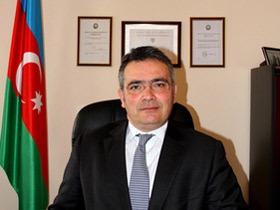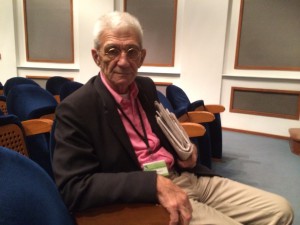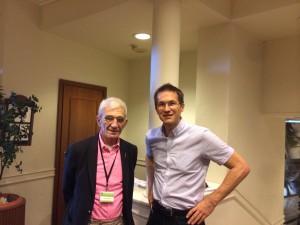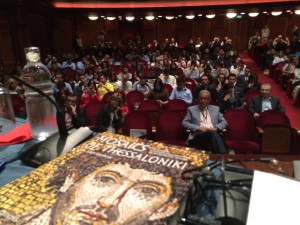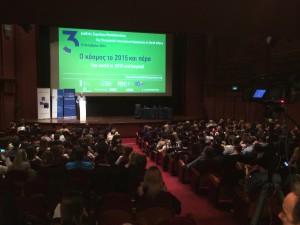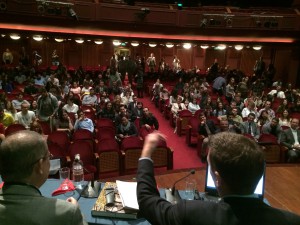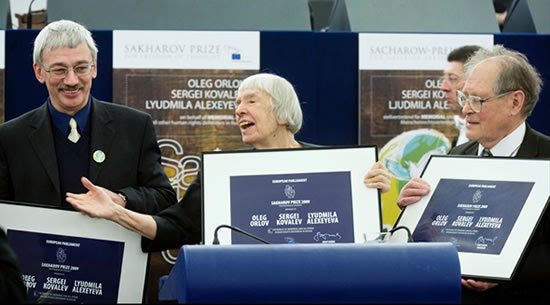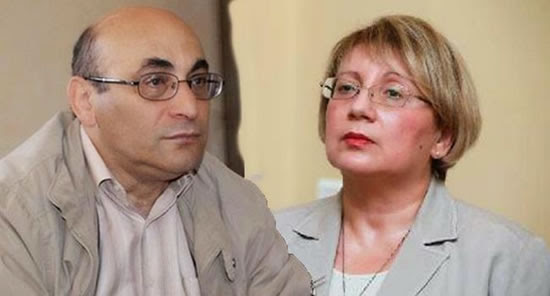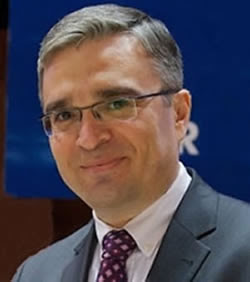Heading to Strasbourg this week – Ambassador of Azerbaijan to the EU
RIDDLE OF THE WEEK
Dear friends, here is a riddle to begin your week:
Why is Fuad Isgandarov, Azerbaijani ambassador and head of its mission to the EU, heading for Strassburg this week for the next session of the European Parliament? Who will he meet and what will he try to achieve in the interest of his country?
Tomorrrow the Conference of Presidents of the European Parliament will chose this year’s Sakharov Prize winner. One of the leading contenders is one of the most inspiring human rights activists in the world today: Azerbaijani Leyla Yunus.
There is support for Leyla Yunus across the different party groups. And there is growing concern in Baku. More and more of the great people held in its prisons today are being recognised for their courage and awarded international human rights prizes. Millions spent on lobbying firms, on invitations, on hosting events, on paying “experts” to say how oil matters more than a handful of prisoners … all undermined by a few human rights prizes?
The prospect of an Azerbaijani woman being named together with Nelson Mandela, Wei Jingsheng, Aung San Suu, Memorial, Reporters without borders or Malala Yousafzai should delight Azerbaijani patriots. Already being nominated as one of three finalists in 2014 is a huge distinction for Leyla Yunus.
We hope the Ambassador, heading to Strassburg, will spare a moment to read this latest letter by Leyla Yunus – in jail, separated from her husband, who is also held in isolation, as are so many of her fellow human rights defenders:
“They didn’t just arrest us as a married couple. By doing so they restored a “glorious” Stalin tradition. They indicted us to such a bouquet of fantastic accusations (even Yezhov and Vishinki would lag behind), including a life sentence… While in detention, I clearly understood their goal is not just the destruction, but brutal torture, insults, and physical torment, when death becomes the desired escape from the terrible suffering. This is our reality, and I clearly realize it. In other words, our work received the highest mark on the highest scale… Arif I feel so lonely without you! For 36 years we were shoulder to shoulder, and were hoping to celebrate our 40th anniversary but they are so afraid of us… Good Lord, how could a small, weak, sick woman scare the ruling government? With what?! I know you would say, “traveler will tell the Lacedaemon, that here we lie, true to the Law”. But I still think Leonidas had it easier, simpler… One of 300s.”
And perhaps he will reflect, as he meets these MEPs, about what really serves his country’s interest.
Leyla’s letter is here: http://www.meydan.tv/+y231z
More about the Azerbaijani mission to the EU is here: http://www.azembassy.be/?options=content&id=12
“Today the people of Azerbaijan, comprising various ethnic and religious groups, are working towards developing a modern and democratic state with free market and solid social institutions.”
And these are the members of the Conference of Presidents who will decide on the winner of the 2014 Sakharov Prize tomorrow:
President of the Parliament: martin.schulz@europarl.europa.eu
European People’s Party (EPP, 221 members): Manfred Weber (Germany) – manfred.weber@europarl.europa.eu
Progressive Alliance of Socialists and Democrats (S&D, 191 members): Gianni Pitella (Italy) – gianni.pittella@europarl.europa.eu
European Conservatives and Reformists (ECR, 70 members): Syed Kamall (UK) – syed.kamall@europarl.europa.eu
Alliance of Liberals and Democrats for Europe (ALDE, 67 members): Guy Verhofstadt (Belgium) – guy.verhofstadt@europarl.europa.eu
Confederal Group of the European United Left – Nordic Green Left (GUE, 52 members): Gabriele Zimmer (Germany) – gabriele.zimmer@europarl.europa.eu
Greens/European Free Alliance (50 members): Rebecca Harms (Germany) and Philippe Lamberts (Belgium) rebecca.harms@ep.europa.eu – philippe.lamberts@ep.europa.eu
BACKGROUND – ESI on Azerbaijan
ESI’s work on Azerbaijan started with this publication on “Baku’s Facebook Generation” in 2011 – and the inspiring quotes on the tradition that has influenced young Azerbaijani’s since, the great Central and East European dissidents:
“… they know from their own experience in 1968, and from the Polish experience in 1980-1981, how suddenly a society that seems atomized, apathetic and broken can be transformed into an articulate, united civil society. How private opinion can become public opinion. How a nation can stand on its feet again. And for this they are working and waiting, under the ice.”
Timothy Garton Ash about Charter 77 in communist Czechoslovakia, February 1984
“How come our nation has been able to transcend the dilemma so typical of defeated societies, the hopeless choice between servility and despair?”
Adam Michnik, Letter from the Gdansk Prison, July 1985
We then studied the puzzle of increasing repression / decreasing criticism on the part of the Council of Europe, and the strange pattern of international election monitoring in Azerbaijan:
- ESI paper: A Portrait of Deception. Monitoring Azerbaijan or why Pedro Agramunt should resign (22 January 2013)
- ESI report: Caviar Diplomacy. How Azerbaijan silenced the Council of Europe (24 May 2012). Also available in Azeri: Kürü Diplomatiyası. Azərbaycan Avropa Şurasını Necə Susdurdu
- ESI report: Disgraced – Azerbaijan and the end of election monitoring as we know it (5 November 2013)
- ESI Facebook picture story: Ilham the Magician and the Council of Europe – Or: how (not) to make the problem of political prisoners disappear. A Fable in 35 Acts that can be read in 5 minutes! (1 October 2012)
There have been quite a few press reactions to “Caviar Diplomacy”. But there have not been nearly enough reactions on the part of the Council of Europe and other institutions.
We have also focused on the issue of political prisoners – in Azerbaijan and across Europe.
- Azerbaijan debacle: The PACE debate on 23 January 2013 (February 2013)
- Showdown in Strasbourg. The political prisoner debate in October 2012 (February 2013)
Recently we made a strong case to support Azerbaijani human rights defenders in jail:
- Standing up for European values (September 2014)
- ESI Briefing: The jails of Azerbaijan – A chronology of recent repression by the chairman of the Council of Europe (May to August 2014)
- Open letter to 125 current and former members of the Parliamentary Assembly of the Council of Europe (April 2014)
There have also been a number of newsletters – many making the case for greater support to Azerbaijani human rights defenders, arguing that their fate matters to everyone concerned about the future of human rights in Europe:
- 2014: 2014 and the threat to Sakharov’s legacy (16 October 2014)
- 2014: Moscow Appeal – The case for Leyla Yunus (2 October 2014)
- 2014: Andrei Sakharov and the defence of the unjustly persecuted (23 September 2014)
- 2014: The LIST and arrests in Baku – Sakharov prize 2014 – Black Sea in Budapest – Capacity building in Kosovo (4 September 2014)
- 2014: Oslo abuse debate – Mr Jagland goes to Baku – June 2 Berlin event – a tradition of dissent (19 May 2014)
- 2014: Hunger strike, European values and an Open Letter (23 April 2014)
- 2013: New ESI report: Disgraced – Azerbaijan and the end of election monitoring as we know it (8 November 2013)
- 2013: Victor Hugo in Baku – Visa free travel and human rights (26 February 2013)
- 2012: Ilham the Magician and the Council of Europe (2 October 2012)
- 2012: Smiles and conditions – Montenegro opens EU door – PACE and Azerbaijan (6 July 2012)
- 2012: Caviar Diplomacy – How Azerbaijan silenced the Council of Europe (24 May 2012)

